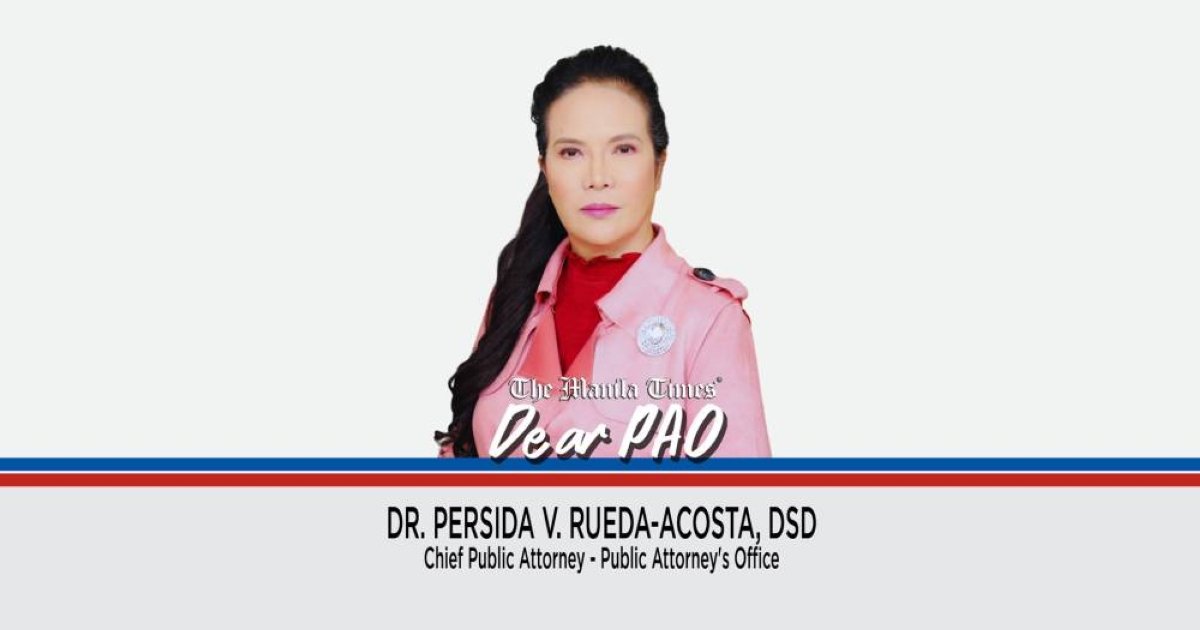Dear PAO,
A private counsel represented me in a civil case involving a certain land. Unfortunately, we lost the case, and my counsel failed to inform me. Hence, no appeal was filed from the adverse decision rendered by the court, and the decision attained its finality. I have already terminated my lawyer’s services and am looking for another lawyer. I spoke with one of my classmates, who is knowledgeable about court proceedings, and he told me that an appeal is the proper remedy. Allegedly, the failure of my former lawyer to file an appeal in a timely manner is tantamount to a violation of the right to due process. Is there a violation of due process in my case?
Willy
Dear Willy,

Generally, an appeal is the legal remedy when the decision of the trial court is not yet final. This is in consonance with Section 2, Rule 40 and Section 3, Rule 41 of the 1997 Revised Rules of Court, as amended, which provide:
“An appeal may be taken within fifteen (15) days after notice to the appellant of the judgment or final order appealed from. Where a record on appeal is required, the appellant shall file a notice of appeal and a record on appeal within thirty (30) days after notice of the judgment or final order.
“The period of appeal shall be interrupted by a timely motion for new trial or reconsideration. No motion for extension of time to file a motion for new trial or reconsideration shall be allowed.”
As a rule, a decision that has attained finality cannot be appealed anymore because of the principle of immutability of judgment, which “bars courts from modifying decisions that have already attained finality, even if the purpose of the modification is to correct errors of fact or law.” (Nestor T. Gadrinab v. Nora T. Salamanca et al., GR 194560, June 11, 2014, Associate Justice Marvic M.V.F. Leonen) However, there is one remedy against a final decision based on the grounds found under Section 1, Rule 38, of the same rules, viz.:
“When a judgment or final order is entered, or any other proceeding is thereafter taken against a party in any court through fraud, accident, mistake, or excusable negligence, he may file a petition in such court and in the same case praying that the judgment, order or proceeding be set aside.”
Based on the facts mentioned in your letter, it appears that fraud, accident, mistake, or excusable negligence does not exist. Further, the fact that your private counsel failed to file an appeal from the decision of the lower court will not result in a violation of due process. This finds support in the case of Cay-an and Cay-an v. Guan et al., GR 228117, Nov. 22, 2023, where the Supreme Court stated:
“Further, petitioners have not been deprived of due process of law. In Mercury Drug Corp. v. Court of Appeals, the Court emphasized that losing the right to appeal does not always result from a denial of due process when the party had actively participated in the proceedings, thus:
“We are not persuaded by the YEES’ claim that they were denied due process inasmuch as they were not denied their day in court. In fact, they were able to prosecute their action and actively participated through counsel in the proceedings before the lower court. Their failure to file an appeal from the decision rendering it final and executory is not a denial of due process. They may have lost their right to appeal, but they were not denied their day in court. The right to appeal is not a natural right or a part of due process; it is merely a statutory privilege and may be exercised only in the manner and in accordance with the provisions of the law.”
Applying the above-quoted decision to your situation, you were given the chance to present your case in court, and you actively participated in the proceedings. Thus, the mere failure of your lawyer to file an appeal does not necessarily result in a denial of due process. In essence, the right to appeal is not a natural right or part of due process but merely a statutory privilege.
We hope that we were able to answer your queries. This advice is based solely on the facts you have narrated and our appreciation of the same. Our opinion may vary when other facts are changed or elaborated on.
Editor’s note: Dear PAO is a daily column of the Public Attorney’s Office. Questions for Chief Acosta may be sent to [email protected]










